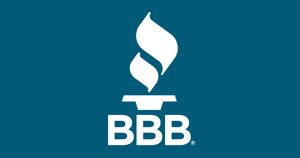Straight Talk: Don't fall for fake subscription notices

Email continues to be a popular avenue for scammers who want to steal consumers’ personal and financial information. To trick consumers into clicking links and providing personal information, scammers are posing as legitimate businesses and emailing consumers. BBB warns consumers to be extra vigilant when receiving urgent emails from supposed businesses asking for payment information.
How the scam works
You receive an urgent email from a business you have a membership or an account with that states your subscription or membership has expired. The email asks you to click a link to provide your payment information. The email may even offer a special deal or discount for updating your payment information now.
The email may look legitimate and include the business’s logo, and you may have even received the email around the time your subscription has expired or will be expiring. So, you click the link and provide your credit card information, only to find out that the email and the website were fake. Your card may be charged, and a scammer now has your personal and financial information.
Scammers may also email you stating that your subscription to a certain business has or will be auto-renewing for a certain dollar amount, causing confusion and worry. They may provide a fake customer service phone number to call.
BBB Scam Tracker has received several recent reports about scammers impersonating different businesses through email. One consumer shared, “Received an email on 1/3/2024 that “my Sirius XM account has expired!” This email came in one day after my normal Sirius XM renewal date. The email wanted me to go to a website and “insert” my credit card info. … Before proceeding, I logged into my actual Sirius XM account and verified it had automatically renewed as normal. What threw me off at first was that the scammer somehow knew my renewal date. I did not lose any money.”
How to avoid impostor email phishing scams
Take a second look at the email. There are several red flags that identify phishing emails. Look at the sender’s email address – if it is a long string of numbers and letters that do not make sense, or if the email address just does not look right, it is likely an impostor. Scare tactics and urgent requests are also quite common for phishing emails, as are spelling errors and poorly written emails. Read BBB’s tips on how to recognize a phony email for more red flags.
Go to the business to confirm the email. Consider calling the business’s real phone number directly (do not use any phone numbers that are included in the questionable email you received) and verify your account details with them.
Keep track of your subscriptions and any auto-renewing payments on a calendar so you know when to expect them. That way, you can have a better idea of determining when a subscription renewal email is legitimate.
Think twice before providing payment for something you did not initiate. If you are being asked to pay with your bank account number, prepaid credit cards, digital wallet apps, or wiring money, this is a red flag.
Check with BBB Scam Tracker. If you are questioning an email you received from a business, look up the details on at BBB.org/ScamTracker to verify if anyone else has received the same type of email. This can help you verify whether or not the email is fake.
Once you verify the email is fake, report it as spam and delete it. Your email provider may provide an option for you to mark an email as spam. If you have verified that the email is a scam, report it and delete it right away.
MORE INFORMATION – Learn more about impersonation scams at BBB.org/ImpersonationScams. BBB has several tips on how to spot a scam at BBB.org/SpotAScam, such as how to identify a fake website, a scam text message, or a phony email. If you receive a fake email from a scammer pretending to be a business, report it at BBB.org/ScamTracker to warn others.
FOR BBB INFORMATION – Visit BBB.org or call us at 330-454-9401 to look up a business, file a complaint, write a customer review, read tips, find our events, follow us on social media, and more!
This article originally appeared on The Alliance Review: Six ways to spot fake email subscription offers
